Take a walk south of Market Street here in San Francisco and you can’t help but feel it. From the well-known tech logos displayed on the buildings to the electric bicycles, skateboards, and unicycles zipping around…even if it makes you roll your eyes, every visual cue is telling you “progress is happening here”. When you’re surrounded by tech companies, it’s hard not to catch the tech progress bug.
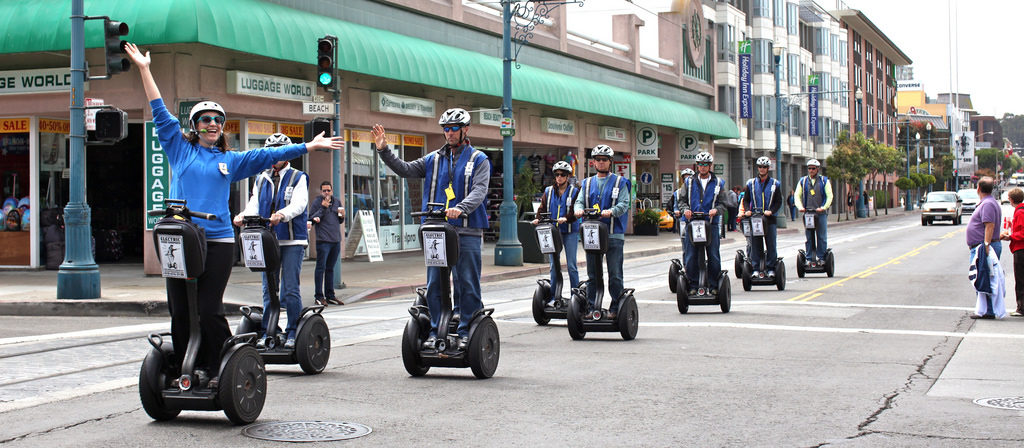
But there’s a side effect to all this perceived progress. It’s easy to get an exaggerated idea of how much progress is actually being made. We feel like we’re living in the future but it leads to periodic disappointment when tech reality doesn’t match up to our techspectations. Anyone who’s used Siri regularly knows exactly what I mean.
I think those of us who work in SEO are the same way. We surround ourselves with research and thought leaders who seek to explain how to help our clients or employers rank better on Google. We’re constantly wondering what Google is doing and looking for clues on how the latest algorithm updates are affecting search results. We speculate on how the algorithm ranks our content and displays it to users, and we love learning about the latest tech they’re using to do that.
It makes me feel like Google is really futuristic. In my mind I have this picture of rows of servers blinking away, crunching the numbers through top-secret algorithms trained by machine learning to bring the most relevant results to the top of page 1. And they are quite good. Google usually does a great job showing me what I need, except when it doesn’t.
A quick search for Rick and Morty recently gave me the results page below. In position 1 was (predictably) Wikipedia, followed by the official Twitter account, the Adult Swim page, IMDB, and a Digital Spy article about the series. But after that, something strange (and I’m not talking about Pickle Rick, he’s cool)…
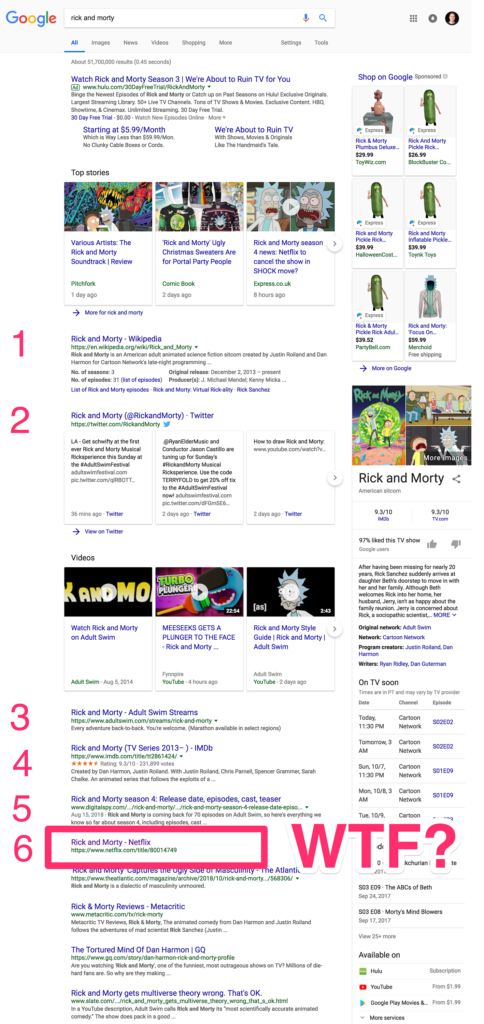
That Netflix link looked really weird to me because everybody in this dimension knows that Rick and Morty is available on Hulu, YouTube, or from Adult Swim directly. It’s not available on Netflix in the US. But I’m located in the US and Google knows that. So what’s that search result all about? Did Netflix finally get schwifty and add Rick and Morty episodes to their catalogue?

I clicked the link to find out…
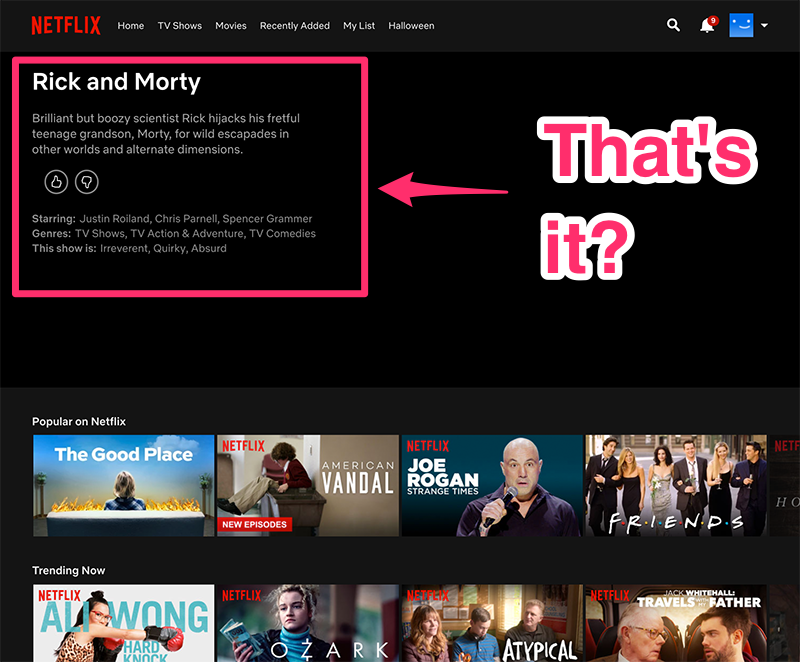
Nope. They just made a page with one sentence about the show, and a list of metadata about it. Under that is a practically infinite scroller of other shows available on Netflix.
So why does this page even show up on page 1 of the search results when there is plenty of interesting and useful content about the show in lower positions?
I considered that perhaps Google’s algorithm is factoring in the amount of clicks the Netflix link gets. After all, lots of people must click it, hoping to see Rick and Morty as part of their Netflix subscription. But I can’t imagine many of them are sticking around on that page. My experience tells me they are probably bouncing back to the search results and trying something else. And we know when Google sees that behavior, it knows users are not satisfied. That’s why I think the answer has to do solely with Netflix.com’s domain authority/the number of backlinks to this page.
Moz DA Score is imperfect, but it’s one of the best ratings systems we have. According to Moz, Netflix.com has a DA score of 92. So any page they create is going to rank well, even if the content is basic. Plus, this page has a ton of backlinks (over 1800), mostly from international publications in countries where Rick and Morty is available on Netflix.
Also…damn. Look at that traffic. I know this show is popular, but people search for the query “Rick and Morty” about 1.5 million times every month. This Netflix page gets over 100k visitors a month, from the US, where the show isn’t even available to watch.
So what can we learn from this about SEO?
“They’re just robots, Morty!”
Google’s search algorithm is really good at showing you relevant results. But it can’t read your mind. It’s pretty clear that it’s still making a best guess based on ranking signals.
The simple takeaway? Brands that have invested the time and resources into authority signals (backlinks, brand, user experience) will be able to push content to the top of search pages for high-volume queries, even if the content isn’t world class.
Update: as of Nov 13, 2018, the Rick and Morty Netflix link is now appearing in position #13 for me in an Incognito window search. Google, as always, is figuring it out.

I run a small SEO consulting business in San Francisco, CA. I like to write a little bit and get in arguments with my friends. It’s the only way I can make sense of the world.
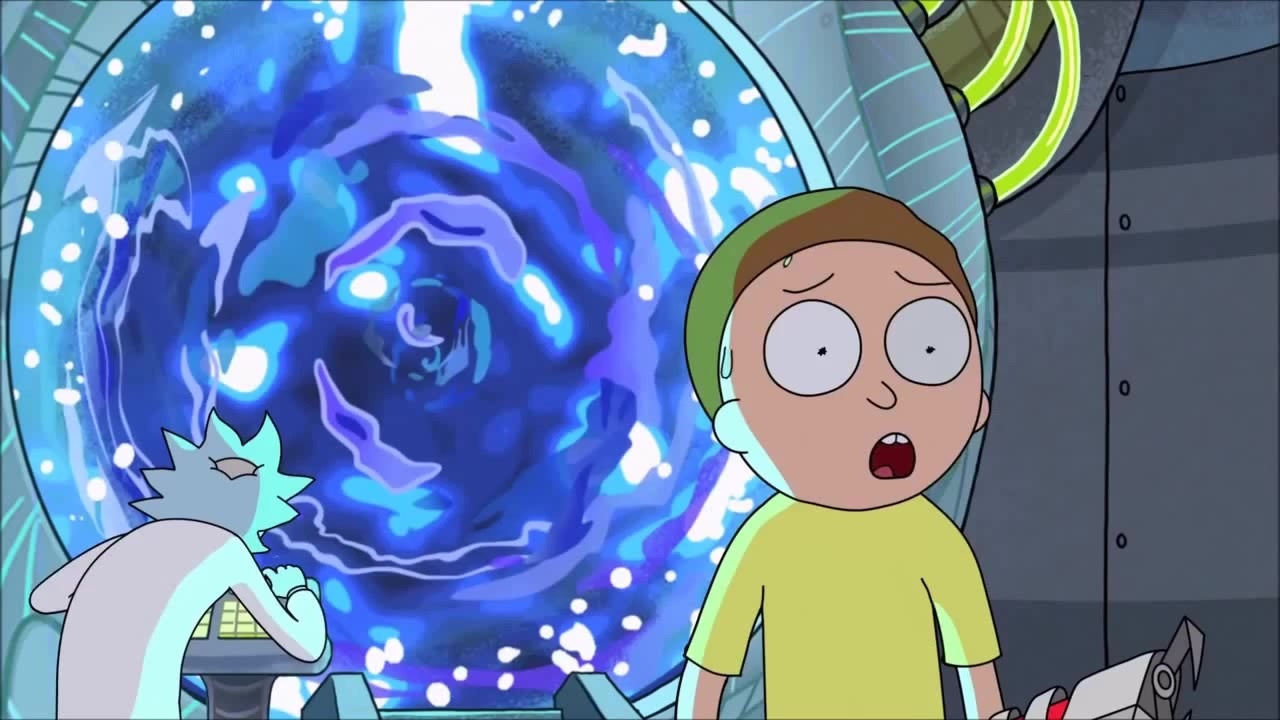
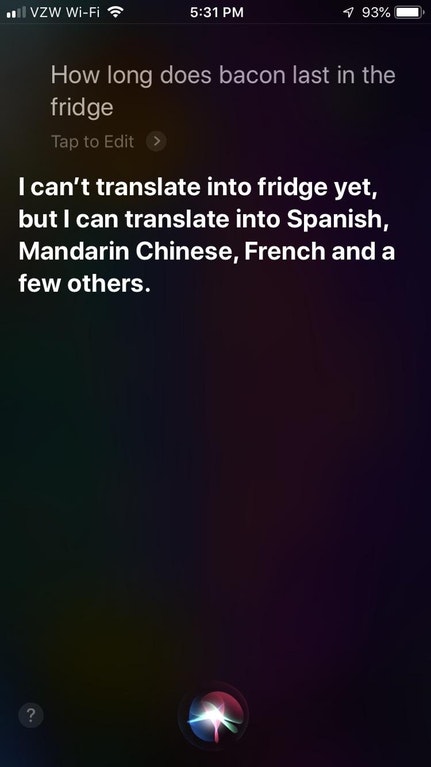
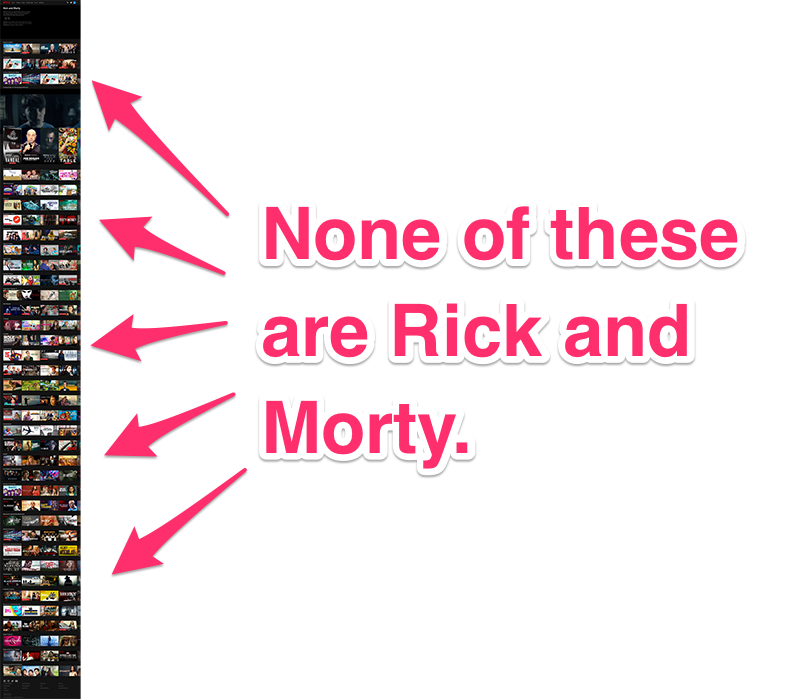

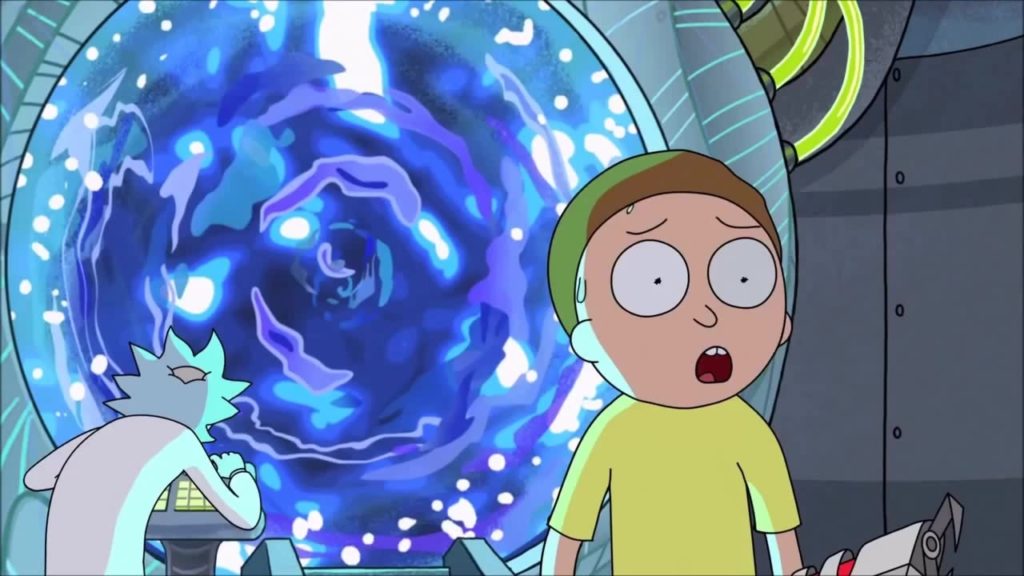
In the end, Google algorithm is way better managed by a computer than a person. At least you could say, you have a chance of hitting page 01 using computer algorithm than thinking how the person thinks and did with the algorithm!
Right you are! I’m just saying it’s tempting to give the bots too much credit.